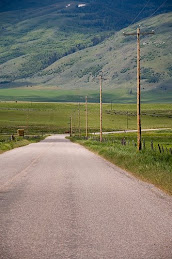
Forty years ago today—on July 20, 1969—man first stepped onto the moon.
Three astronauts were a part of the Apollo 11 mission to the moon: Neil Armstrong, Buzz Aldrin, and Michael Collins. Armstrong was the first to set foot on the moon. Aldrin was second. As Armstrong stepped onto the surface of the moon, he uttered the words, "That's one small step for man, one giant leap for mankind." After a couple hours on the lunar surface, the two rejoined their third companion, who had been orbiting above in the spacecraft. And then they returned home to earth.
 It had been a mere 66 years since Orville Wright flew the first powered airplane at a wind-swept beach at Kitty Hawk, North Carolina, on December 17, 1903. The first flight lasted only 12 seconds and covered 120 feet. Three more flights were made that day with Orville's brother Wilbur piloting a flight that lasted 59 seconds and covered 852 feet. Americans consider the Wright brothers the fathers of aviation.
It had been a mere 66 years since Orville Wright flew the first powered airplane at a wind-swept beach at Kitty Hawk, North Carolina, on December 17, 1903. The first flight lasted only 12 seconds and covered 120 feet. Three more flights were made that day with Orville's brother Wilbur piloting a flight that lasted 59 seconds and covered 852 feet. Americans consider the Wright brothers the fathers of aviation. Brazilians, those dear people among whom I served my mission, consider one of their own countrymen as the father of aviation. Santos Dumont [Alberto Santos Dumont, 1873–1932, born in the Brazilian state of Minas Gerais] designed, built, and flew the first controllable airship, a small blimp, around the Eiffel Tower in Paris on October 19, 1901. Five years later, on October 23, 1906, he flew a fixed-wing airplane, the first such aircraft to be publicly witnessed to take off, fly, and land in Europe. He was one of the most famous people in the world in the early years of the twentieth century.
Brazilians, those dear people among whom I served my mission, consider one of their own countrymen as the father of aviation. Santos Dumont [Alberto Santos Dumont, 1873–1932, born in the Brazilian state of Minas Gerais] designed, built, and flew the first controllable airship, a small blimp, around the Eiffel Tower in Paris on October 19, 1901. Five years later, on October 23, 1906, he flew a fixed-wing airplane, the first such aircraft to be publicly witnessed to take off, fly, and land in Europe. He was one of the most famous people in the world in the early years of the twentieth century.Even though he died in 1932, he was still very famous and very revered in Brazil when I was there serving my mission in 1969 and 1970. The smaller of two airports in Rio de Janeiro was named after him, and while I was serving in the mission office I went there at least once to meet someone flying in from São Paulo. Arriving and departing missionaries flew into and out of the larger, newer Galeão International Airport. The smaller, older Santos Dumont Airport primarily handled domestic flights to and from other Brazilian cities.
And so I guess it was appropriate that I was in Brazil for one of the most significant events in the history of mankind: man's first steps on the moon. And although the Apollo 11 spacecraft actually reached the moon on my 20th birthday, Saturday, July 19, 1969, the space module Eagle did not actually land on the surface of the moon until what in the western hemisphere of our planet was Sunday, July 20. But that seemed appropriate: July 20 was the 96th anniversary of Santos Dumont's birth.
"A dream of ages was fulfilled tonight," I wrote in my missionary journal for Sunday, July 20, 1969, "as man stepped onto the moon. Ever since the project was given the final go-ahead a few days ago, I have prayed for the mission's success and for the safety of the astronauts. But the moon is no longer virgin soil. The two Americans stepped onto the moon just a few moments before midnight Brazilian time, about 40 minutes after we gave up the vigil and went to bed. Probably every television set in the world was tuned to the coverage of the moon shot. Part of the goal set back in 1961 by John F. Kennedy has been realized: having a man on the moon before 1970. The other part? To bring them safely back to earth."
The next day, Monday, July 21, I wrote in a letter to my family back home in Idaho: "Yesterday, July 20, man first stepped onto the moon. A dream of centuries has been realized within 66 years after man’s first heavier-than-air flight at Kitty Hawk on that December morning in 1903. In just a lifetime fantasy has become reality. What will that many more years bring? We are living in an exciting age, in adventurous times."
It was a heady time. For days afterward we missionaries, being Americans, were hailed on the streets as heroes, as though we had played some personal part in the historic drama that played out before the eyes of all the world.
On Thursday, July 24, which was being celebrated back home as Pioneer Day, I made one final journal entry: "Appropriately America's modern pioneers, the three astronauts, safely returned from their journey to the moon. Although they went into incubation confinement immediately after leaving the space capsule, President Richard M. Nixon was aboard the naval carrier that picked them up to give them an appropriate heroes welcome."


No comments:
Post a Comment